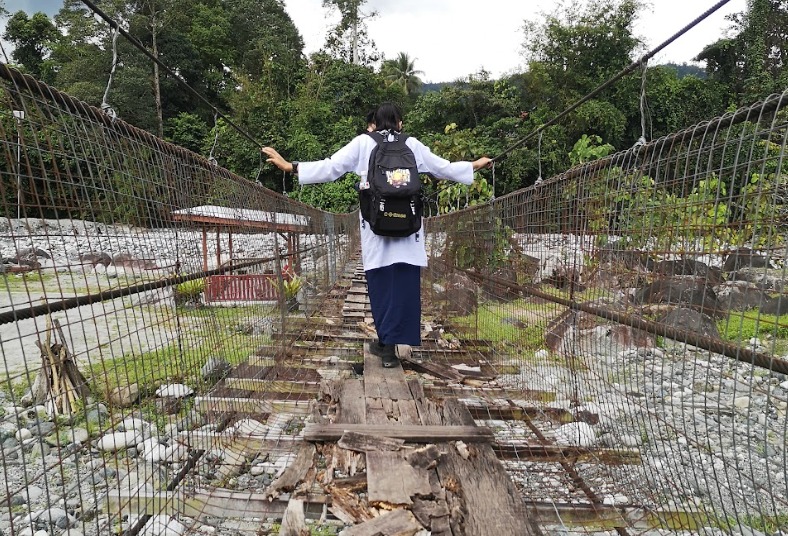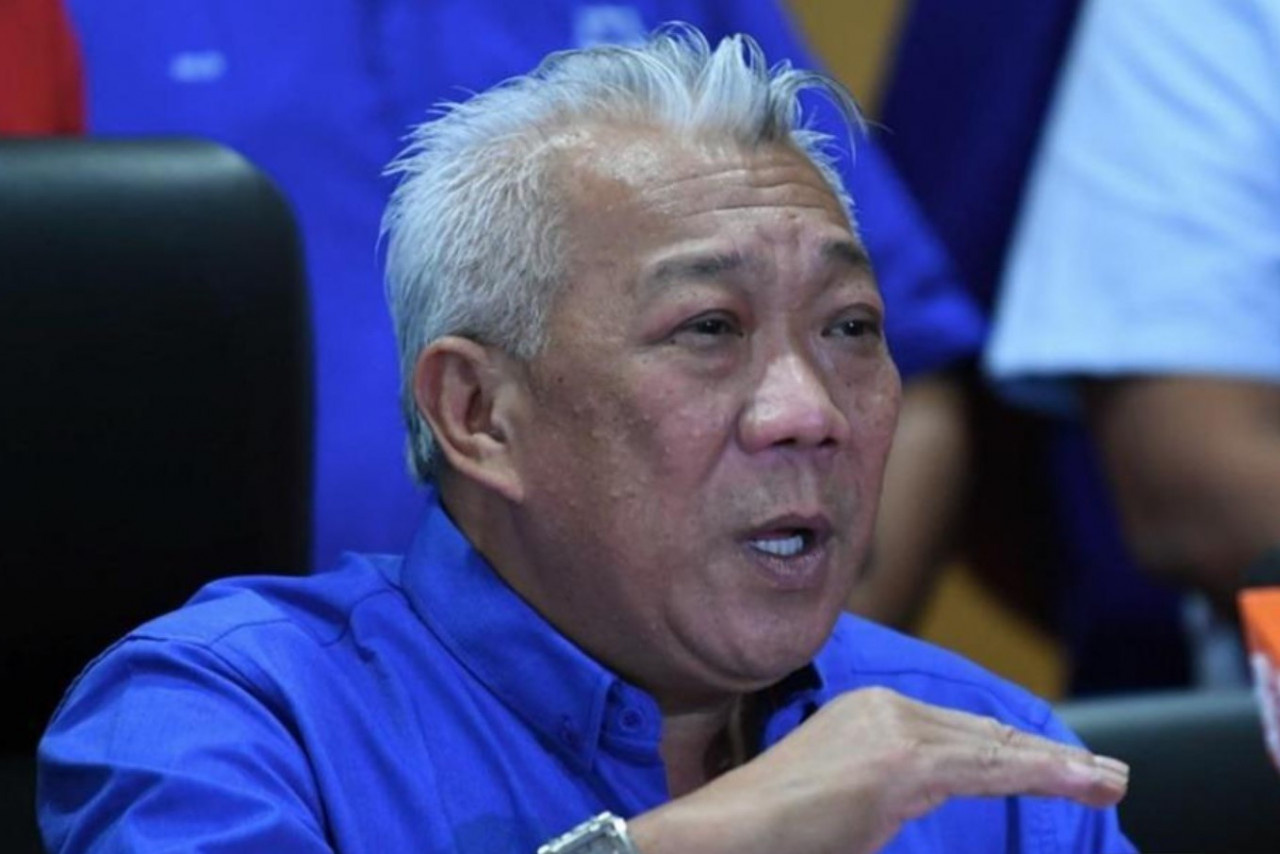
Baffling to think how Malaysia’s most needy could still vote for leaders who fail to solve their plight
(The Vibes) – A POLITICAL friend of mine once came to me with a joke.
He threw me this question: “What do Datuk Seri Maximus Ongkili, Datuk Seri Ronald Kiandee, Datuk Abdul Rahim Bakri, Datuk Arthur Joseph Kurup and Datuk Seri Bung Moktar Radin have in common?”
The answer came as a nerve-hitting punchline. “While they are all Sabah-based MPs from ruling parties,” he said, “they represent the poorest of the poor districts in Malaysia”.
It may not be a funny joke, but it certainly provides much food for thought.
Of the 10 poorest districts in Malaysia identified under the 12th Malaysia Plan, eight are in Sabah – and their elected representatives are prominent politicians.
The first, Kota Marudu, is a parliamentary constituency held by Parti Bersatu Sabah president Ongkili.
Beluran and Telupid, parliamentary and state seats respectively, are held by Bersatu vice-president Kiandee.
His party colleague Rahim is the MP for Kudat and state assemblyman for Pitas. Both these constituencies are on the poor list.
Meanwhile, the Nabawan state seat is occupied by Arthur who is from Parti Bersatu Rakyat Sabah (PBRS).
The other poor district of Tongod is interesting. It is within the federal constituency of Kinabatangan whose MP is Bung Moktar, the chairman of Sabah Umno and also Sabah Barisan Nasional.
Tongod’s state constituency is called Kuamut, and it is represented by Datuk Masiung Banah, a former Warisan man who is now an independent.

The eighth among the poorest districts is Kota Belud whose MP is Warisan’s Isnaraissah Munirah Majilis. The first-time legislator won the seat against Umno, which had held the seat for decades before the last general election.
My friend made some further interesting points in his rather sobering “joke” – shedding more light on the profiles of these lawmakers who got elected in the country’s poorest districts.
Ongkili is a six-term MP and a federal minister – in charge of Sabah and Sarawak affairs in the Prime Minister’s Department, no less.
And Kiandee, formerly of Umno, has been an MP since 1999. He is also currently the federal agriculture and food industries minister.
Rahim has been MP since 2004 and has held four federal deputy ministerial posts – for foreign affairs, transport, defence and finance. Now he has two of the poorest districts under his helm – Kudat and Pitas.
Nabawan is under the Pensiangan federal constituency. The father of current MP Arthur, Tan Sri Joseph Kurup, was the parliamentarian before him, from 2008 to 2018. Joseph is also the founding president of PBRS.
Arthur is presently the federal deputy works minister. Prior to this he had a stint as a deputy minister in the Prime Minister’s Department – where his father had once served as a minister.
Bung Moktar, the maverick and controversial MP who has held Kinabatangan for five terms in a row, is a deputy chief minister of Sabah. He holds the portfolio of works minister in the state cabinet.
Masiung is the chairman of the Sabah Housing and Urban Development Board – a state ministerial-level position.
The young Isnaraissah, meanwhile, is a former federal deputy minister for energy, science, technology, environment and climate change.
It is noteworthy that Sarawak fares better than Sabah. The neighbouring Borneo state has only one poor district, Pusa, on the list .
The 10th district on the list is Lojing in Kelantan.
Most of these Sabah legislators have been in power for too long. A couple of them had been MPs since I was in secondary school.
Plight of people in poorest districts
Now being among city folk, I get frustrated even at the slightest dissatisfaction in service.
For instance, my internet service provider, which I would not hesitate to lodge a complaint to the Malaysian Communications and Multimedia Commission about, would have an outage for as long as two hours.
Perhaps the closest experience I can get to my counterparts in these “poorest” constituencies would be something like going out camping in the forest, harvesting rainwater, cooking with firewood, and lighting the campsite with just candles or oil lamps.
But just don’t take my word for it. It could be an understatement.
As you can see in recent times, some of these districts have come under the media spotlight.
For instance, in Pitas, schoolgoing children brave rivers to get to school.
The same in Kota Belud, where students have to cross a dilapidated bridge to attend lessons.
Or in Nabawan, where teachers have to walk 18 hours to get to school.
Of course, not forgetting the famous Veveonah Mosibin, a university student who was forced to climb atop a tree to get internet access for her school examinations.
The list goes on. Still, it is baffling how these reps could retain power for so long.

For many who know me well, I constantly use the Grab e-hailing service to cover functions.
On some of my rides, I encountered drivers from Beluran and Kota Marudu, which are on the list of poorest districts.
They had come a long way to become Grab drivers and I asked them why.
The Beluran driver would often tell me that there’s no work in his town.
Beluran is an oil palm-filled district town located 131km from Kota Kinabalu, towards the east coast.
The closest township is in Sandakan, which is 81km away.
But the pay is not that great there. And the prospect of earning a good living would be in Kota Kinabalu – at least for Grab drivers.
He told me that during the tourism boom two years ago, he could earn between RM4,000 and RM5,000 a month due to high demand from tourists for sightseeing excursions.
But their income fell significantly to none at all when the government imposed the Covid-19 lockdowns.
While some opted to take on food deliveries, some could barely afford rent.
He also told me that although the situation was bad, it was still much better than staying in his village.
He said there were no jobs there. He tried picking oil palm from his parents’ land, but the pay was too low.
When I asked him about his MP, the driver told me that he would only come around when he needed their help and would not be seen otherwise.
I heard similar comments from the Kota Marudu driver. No job, low pay.
It was when I asked about his MP that he got riled up. “Tiada guna la dia tu” (he is useless).
Then why do you and your people vote for him, I asked.
He went on to explain how poor the communities are in some parts of Kota Marudu.
But he also said his family prefers to stay in the low-income bracket as they want to receive government aid.
Humiliation and desperation while making a living
It is also surprising how many Sabahans, especially those from the rural areas, have had to migrate elsewhere to find work.
Sabah Chief Minister Datuk Seri Hajiji Md Noor said there are close to 200,000 Sabahans working in the peninsula now.
The situation reminds me of my own experience where I too had to go to the peninsula to make it in life.
I had decided in early 2000, after staying and working in the peninsula for six years, to return to Kota Kinabalu and settle down.
When I sought advice from my siblings who were with me in the peninsula at the time, an older brother was strongly against it.
“There’s nothing for you in Sabah. You can’t find a proper job. The employers don’t pay well,” he told me.
At the time, I was already an experienced barista and a specialist on fire and waterproofing, skills I picked up throughout my years in the peninsula.

But I was adamant and returned to Kota Kinabalu. It took me three months to find a job, arranging canned foods at a hypermarket in Putatan.
Before that, I tried getting a job at any specialist companies in town. None of them wanted to hire an experienced worker.
Overqualified, they said, or “what will my supervisor say if I give you that kind of salary”. It was really disappointing.
I also tried my luck when Starbucks and Coffee Bean came to town. They both could not hire me. It made me think for a while whether I was hip enough to work in such establishments.
On one occasion during a group interview, one of the West Malaysian interviewers raised his voice, telling me not to waste his time. It was difficult and embarrassing.
It got to the point where things became so desperate that I had to take a job at a hypermarket as a general worker. For a year, I arranged canned food products on the gondola.
All those years of learning and acquiring skills, I told myself, how in the world have I fallen into this situation. It really made me rethink whether coming back was actually a really, really stupid idea.
From earning thousands of ringgit a month down to a three-figure salary. But of course, all of this is history now. But I understand where the poor in Sabah are coming from.
Situations can be so bad that even attempting to leave the village is a challenge by itself. It is indeed a vicious cycle of poverty. But unlike my peers, I never had the help of the YBs.
I started all over from scratch. Relearning and mastering new things in the process. When the election comes, I know I am not indebted to my elected representatives.
With that, I have earned the right to complain and tell my representative to do his job, without having to be submissive to any politicians.
This may be a luxury my peers in these poor districts have yet to experience, which I hope they will in the future. – The Vibes, May 9, 2022
Jason Santos is The Vibes’ Sabah bureau head



No comments:
Post a Comment
Note: Only a member of this blog may post a comment.